‘Radical Ideas’ Given Ministerial Endorsement at Mobility Summit
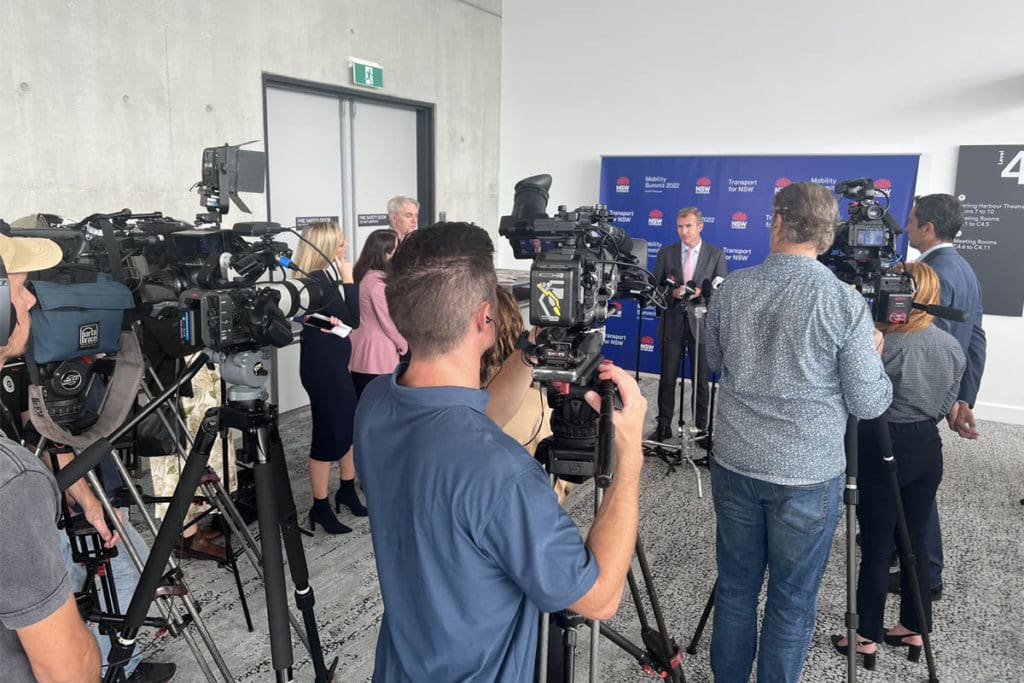
Sydney, NSW
Transport for NSW ran a Mobility Summit at the International Convention Centre in Darling Harbour on Thursday 28th April 2022.
It was very well organised, well attended and announcements made at the summit by the Minister for Active Transport, Rob Stokes attracted huge mainstream media interest.
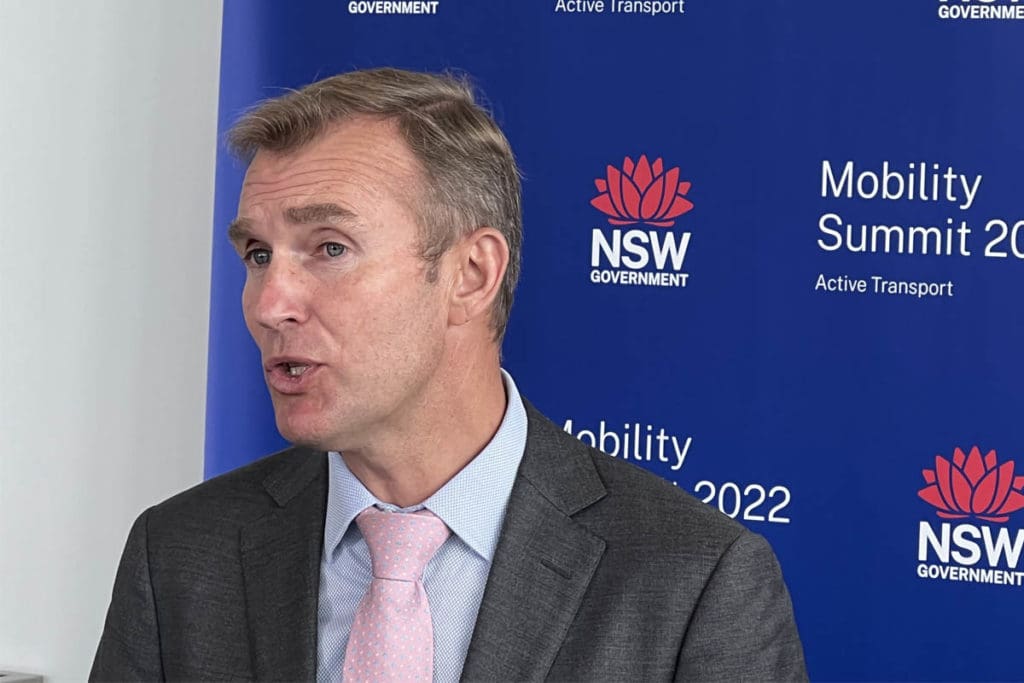
It’s tempting for someone who has attended many summits, conferences and similar events over the decades to dismiss these events as ‘talkfests’. But words are important, because they precede actions.
There were prepared announcements about an e-scooter trial and a ‘strategic cycling corridors blueprint’. We’ve previously reported about these in detail here, as did much of the mainstream media who attended a brief press conference during the morning tea break.
But to the best of our knowledge, the ‘off the cuff’ remarks made at the start of Rob Stokes’s address to the summit attendees have not been reported elsewhere.
The comments below were part of an impromptu 10-minute chat before Mr Stokes began reading his prepared speech. They contain concepts that, while already understood and agreed with by most micromobility and liveable city advocates, would be considered as radical ideas within most mainstream political party rooms around Australia and by large sectors of the general public and mainstream media.
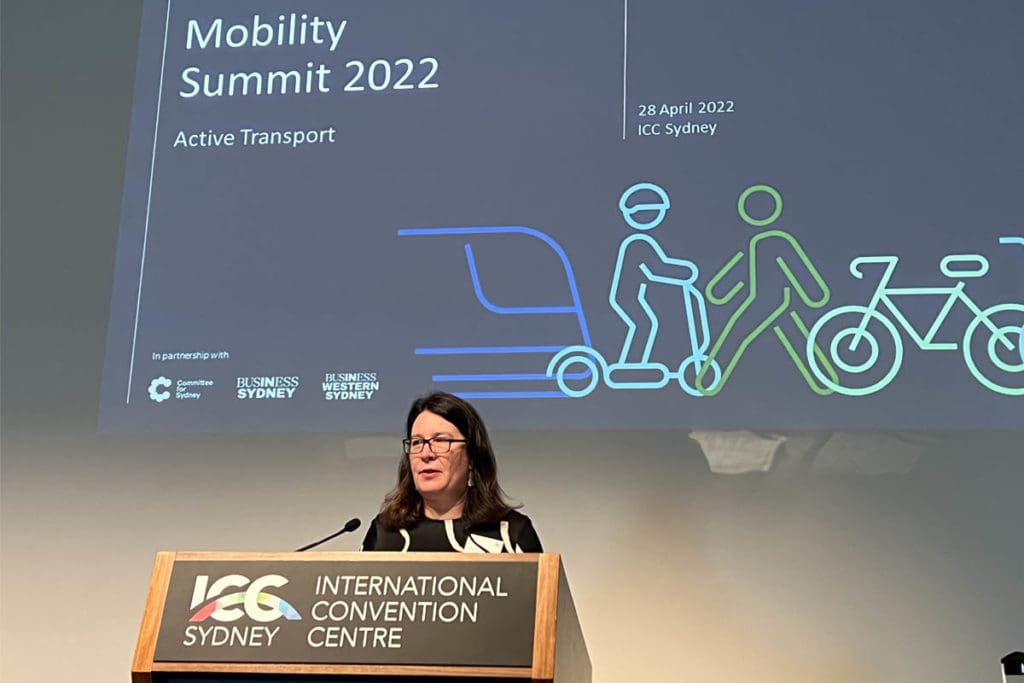
On the Allocation of Road Space
“It strikes me as extraordinary that the biggest single land use in a sprawling city like Sydney is actually transport. About 40% of our land area is set aside for car parks or roads or somewhat euphemistically called nature strips that have not much to do with nature,” Minister Stokes began.
“All of this area – and it’s all public land – it all belongs for every one of you. But it’s been segregated and set aside for civic uses and we’ve all been trained, in a Pavlovian sense, to think it’s inappropriate to use (reallocate) this space, that is your land. Public land.
“So often streets, that should be used to link us together, are actually used to separate us from one another. That’s really an obscene thought but it’s the lived experience of people each and every day.
“These public spaces that should be arteries of commerce are often actually directing people away from local trade, local providores, or the opportunity for people to get together to discuss ideas.”
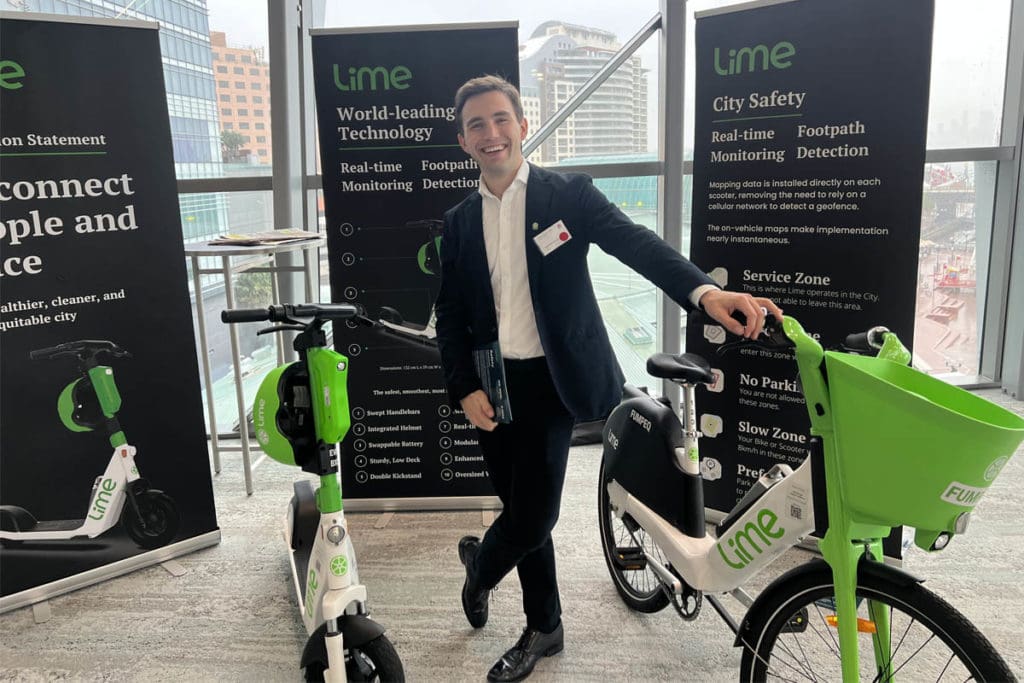
On Transport Equity
“…this brings me back to the idea of equity. The antipathy that we often get when we talk about trying to increase access to things like cycling or e-mobility or pedestrians.
“Why on earth are people so angry about pedestrians being free to go for a walk?
“Why are people so angry about a cyclist sharing the road space?
“What promotes that anger and that antipathy in society? I think all of you would have had the experience I’ve had of being frightened to use road space when I’ve got just as much right as anyone else to use it. Where does that come from?
“I think that idea of equity is something we need to reflect upon. This is not about providing greater access for the powerful in our society… It’s actually about considering those who are locked out.”
It’s not about trying to ensure that the people who are young or fit or able bodied or whatever the case might be to have more flexibility to get around.
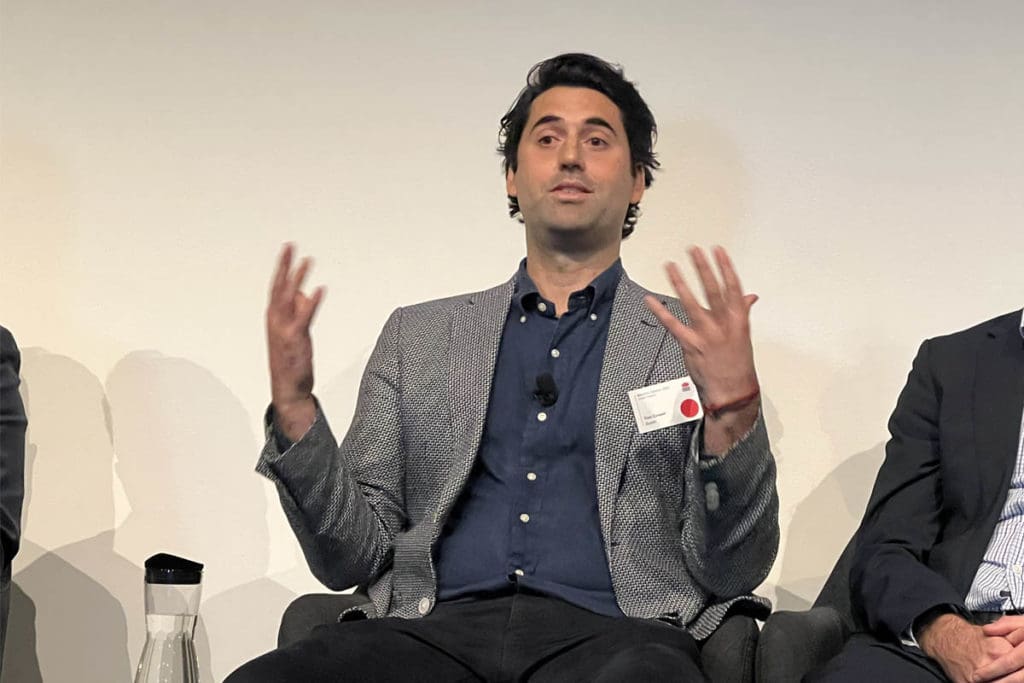
“It’s actually about considering those who are locked out, for whom the private motor vehicle is something they are forced to use because they don’t have other options.
“It’s about ensuring people who might have chronic health issues and concerns have opportunities for them to get out and about.
“It’s for people who don’t have effective public transport options nearby. It’s about helping them to get out and about.
“It’s about recognising that everyone in a democratic society has the same rights to access goods, services and the exchange of ideas and the diversity that builds a richer society.”
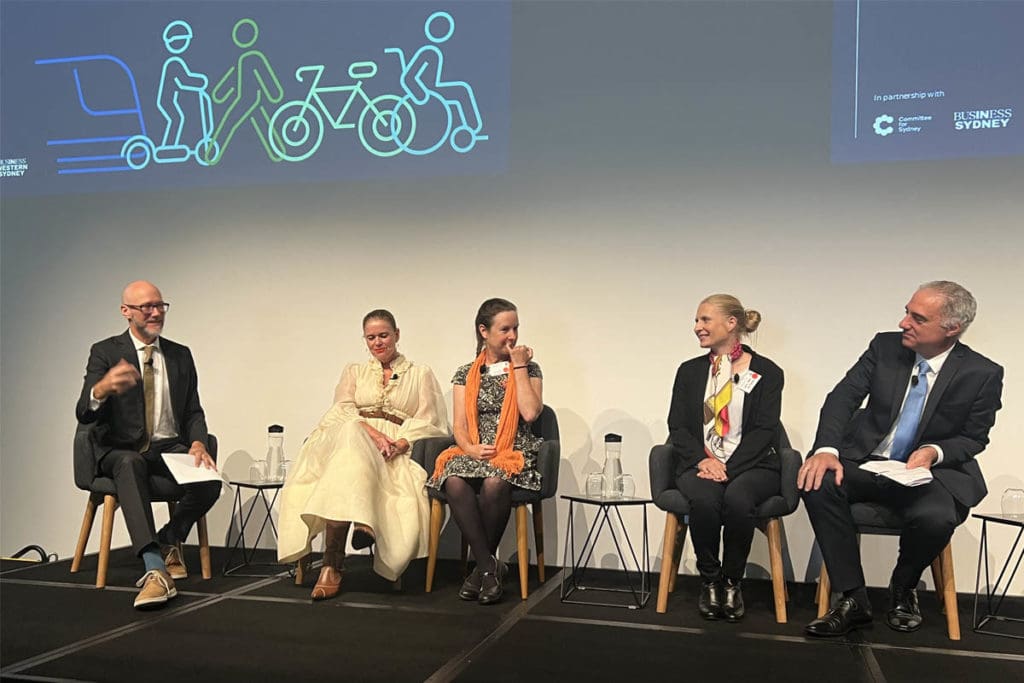
Other Notable Remarks
Moving on to read his prepared speech, Minister Stokes quoted Enrique Penalosa, the former Mayor of Bogota, Colombia who was a global leader in building cycling infrastructure, “A protected cycleway is a symbol of democracy. It shows that a citizen on a $30 bike is equally as important as one in a $30,000 car.”
Minister Stokes also talked about the current lack of children walking and cycling to school and the need to change this.
He said currently about two out of every three children are driven to school in NSW, and he shared a story about a school he visited where the principal had banned all students from riding to school. The Minister went on to talk about the benefits of cycling and walking to school, adding, “… it also gets children off their screens and creates a safe space where they can learn, connect with their community and instils values and behaviours which they carry into adult life”.
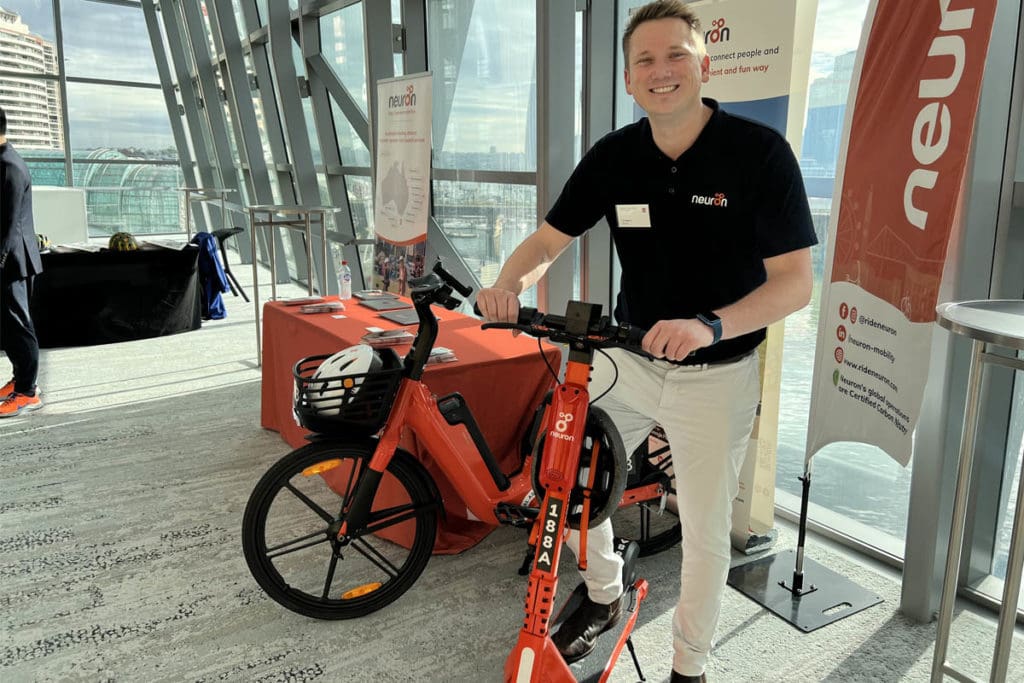
In introducing the major e-scooter trial in NSW, Minister Stokes hinted that the shared scheme trial could be followed by wider legislative changes.
“The reality is that people are already using them,” he acknowledged.
“We need to recognise this reality by appropriate and as far as possible, light-touch regulation, to ensure that the use of these new technologies is as convenient, but also as safe, as possible. Safe for the people using them and safe for the people they are riding around. That’s why I’m bringing forward our e-scooter trial from October to July, starting with shared schemes.”
He concluded his speech by addressing the elephant in the room when it comes to making any significant changes in Australia – the dominance of private motor vehicles, both on our roads and in our culture.
“They can be an incredibly useful servant but they make for a terrible master,” he said.
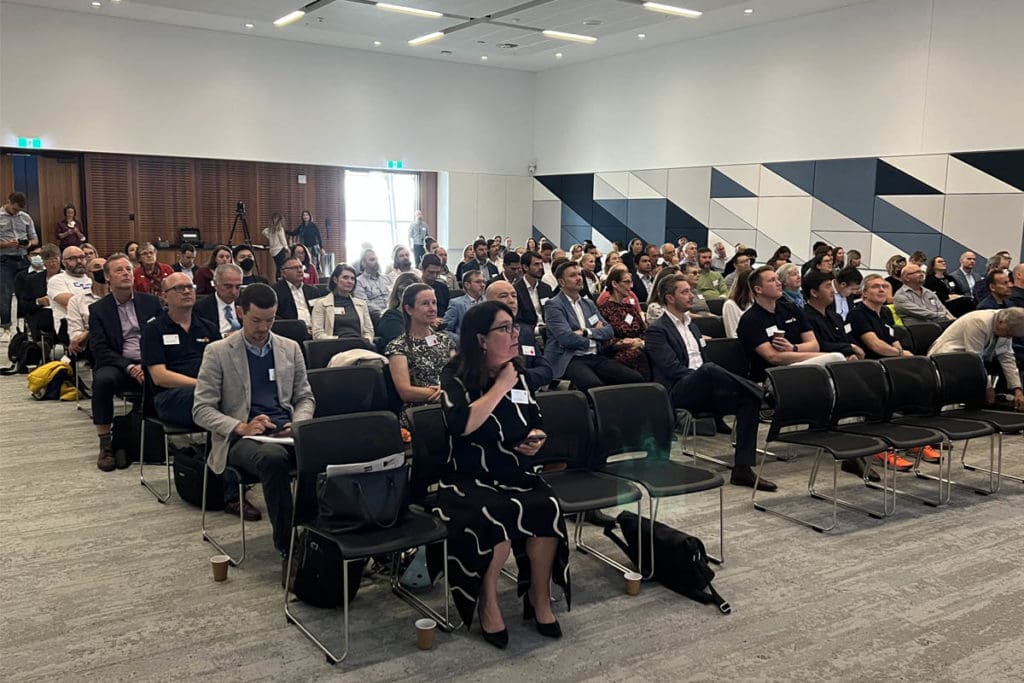
“Ultimately, today’s summit is about how to make us all more free, how to give us all more choice and to create a fairer, cleaner and safer road environment for everyone.
“That’s an exciting initiative for us all to be doing. I believe it’s actually the work of building a better civilisation for all of us. For our children for our grandchildren.

Stokes is indeed a visionary.